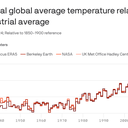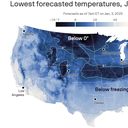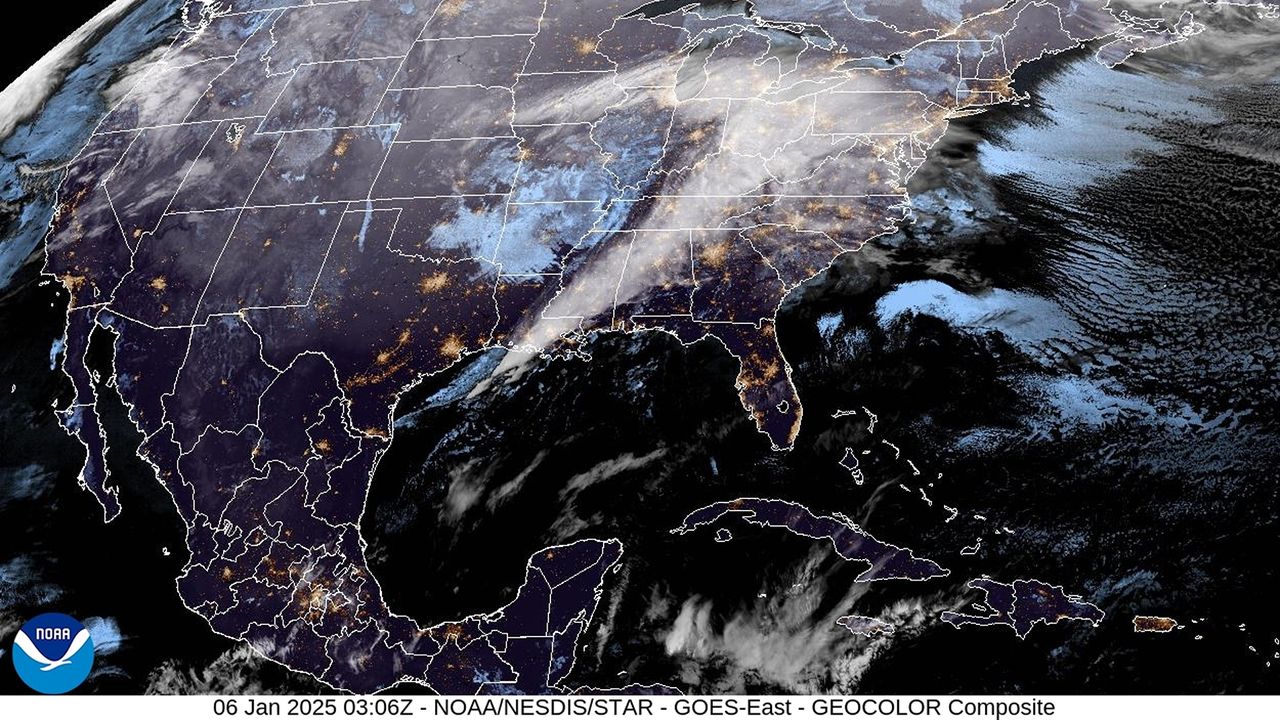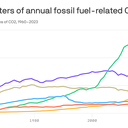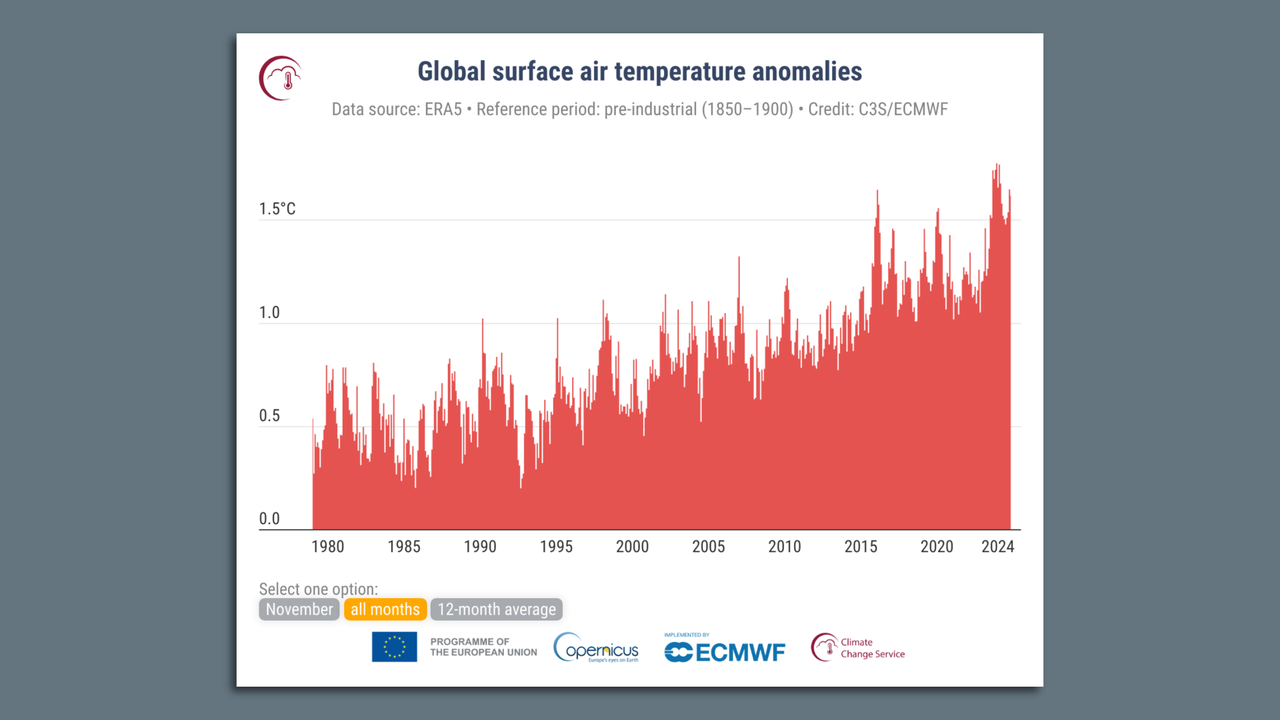2024: Earth's hottest year and first to exceed Paris target
Last year was Earth's warmest on record, eclipsing 2023's record and for the first time exceeding the Paris target of 1.5°C above preindustrial levels, the Copernicus Climate Change Service announced.
Why it matters: While climate scientists don't put too much stock into an individual year's record, the long-term trend is toward more rapid warming, and it is not entirely clear why 2024 was so hot and what it portends.
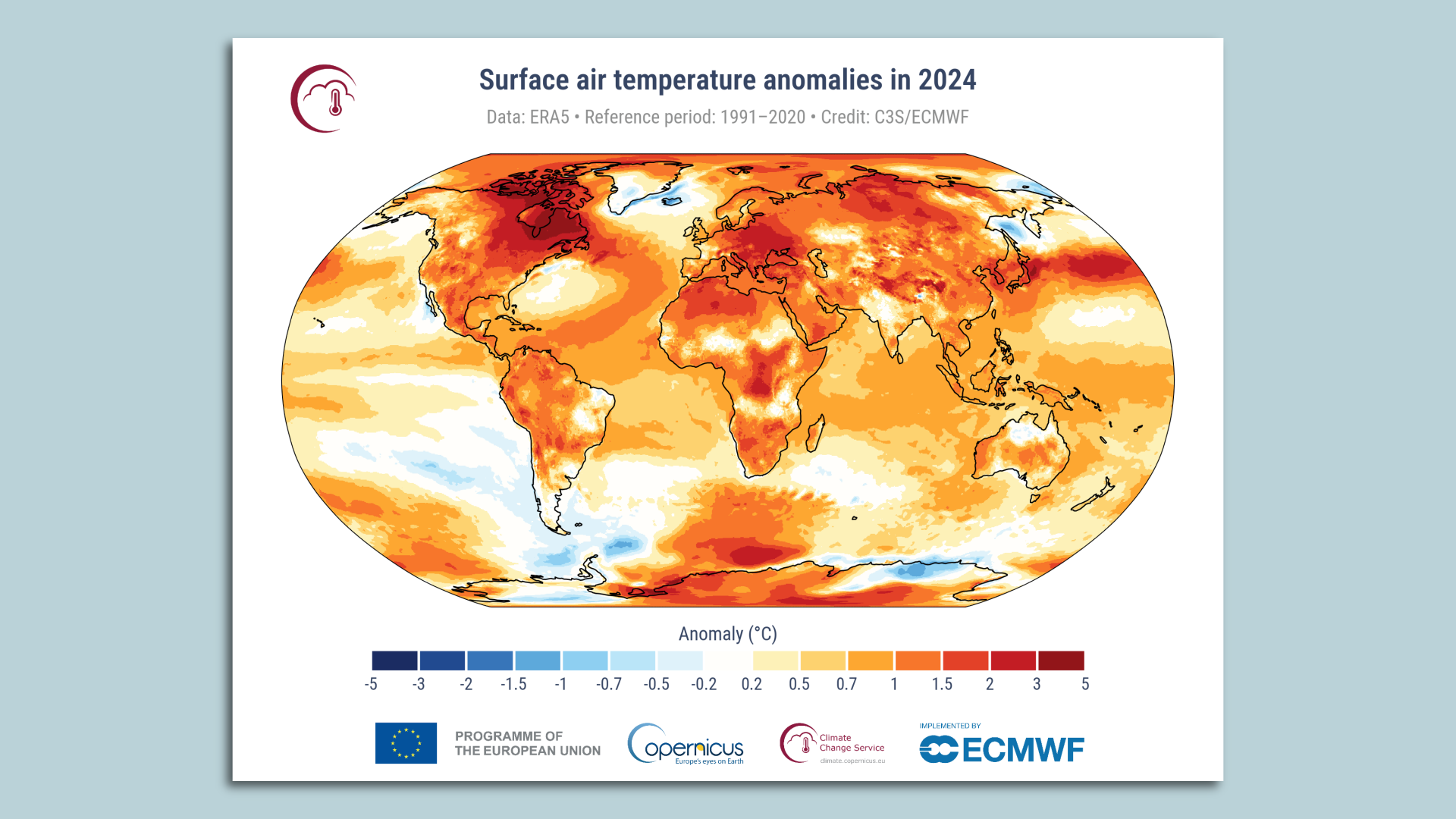
Zoom in: Last year was the hottest seen in instrument record-keeping but also much longer before that.
- In fact, as with 2023, the year was very likely the hottest in at least 125,000 years.
- Some daily global average temperatures, as measured using increasingly precise computer model data, exceeded 2°C above preindustrial levels — flirting with another temperature target in the Paris climate agreement.
According to Copernicus, an agency of the European Commission, each year in the last decade has been one of the 10 hottest on record.
- Global average surface temperatures in 2024 were about 1.6°C above pre-industrial levels, Copernicus found, and about 0.12°C (.22°F) above 2023's record high.
- Data from U.S. centers, such as NOAA and NASA, show similar results. The World Meteorological Organization, a U.N. agency, also found that the global average surface temperature in 2024 exceeded 1.5°C above preindustrial levels.
- Berkeley Earth, an independent temperature monitoring group that also released its 2024 data Friday, noted in a report that the record-breaking warmth of the past two years "demonstrates a clear deviation from the long-term warming trend, suggesting that warming rates have increased, at least in the short term."
Yes, but: The Paris Agreement's most stringent temperature target of holding warming to 1.5°C compared with pre-industrial levels refers to a long-term, 20-to-30-year average, rather than a single year or two.
- Still, 2024 shows the world is already exceeding the barrier that diplomats set at the Paris climate summit in 2015, and in fact the average of 2023 and 2024 falls above the 1.5°C threshold, Copernicus said.
- Studies show that if warming exceeds 1.5°C relative to preindustrial levels, the odds of potentially catastrophic impacts, such as the shutting of key ocean currents and melting of Arctic and Antarctic ice sheets, would increase considerably.
- Regarding exceeding the 1.5°C marker, Copernicus' news release stated: "Global temperatures are rising beyond what modern humans have ever experienced."
Reality check: While global leaders are still committed to the 1.5-degree goal, it is partly because of a lack of consensus of what a new target should be.
- Most climate scientists don't think the current threshold is feasible.
- Berkeley Earth bluntly states as much in its report: "The Paris Agreement goal of limiting warming to 1.5°C will not be met, and the long-term average referenced by this target will exceed this threshold in the next five-to-10 years, conservatively."
What they're saying: "Humanity is in charge of its own destiny but how we respond to the climate challenge should be based on evidence," Carlo Buontempo, the Copernicus Climate Change Service's director, said in a statement.
- "Whether it is at a level below or above 1.5°C of warming, every additional increment of global warming increases the impacts on our lives, economies and our planet," said WMO Secretary-General Celeste Saulo in a separate statement.
Between the lines: One of the most impactful records seen during 2024 was unusually high amounts of water vapor in the atmosphere, at about 5% above the 1991-2020 average, beating previous highs.
- Extreme heat and high humidity is a deadly combination, and record large swaths of the globe saw "strong" to "extreme heat stress," per Copernicus' data.
- The high water vapor content in the atmosphere also helped contribute to extreme precipitation events and to rapidly intensifying tropical cyclones such as hurricanes Helene and Milton.
The intrigue: Climate scientists are still investigating why 2024, which didn't feature 2023's planet-warming El Niño event on top of human-caused climate change, vaulted above the previous year on the list of hottest years.
- Multiple studies have been published on this topic, and the possibility that the climate has shifted into a new phase of more rapid warming for reasons that are not yet completely clear is unnervingly still on the table.
What's next: Along with NOAA's and NASA's climate reports on Friday will come a new report on trends in ocean heat content.
- All of it is likely to show evidence of a planet heating faster and to record levels.
Editor's note: This story has been updated with additional details and comments from WMO Secretary-General Celeste Saulo.
